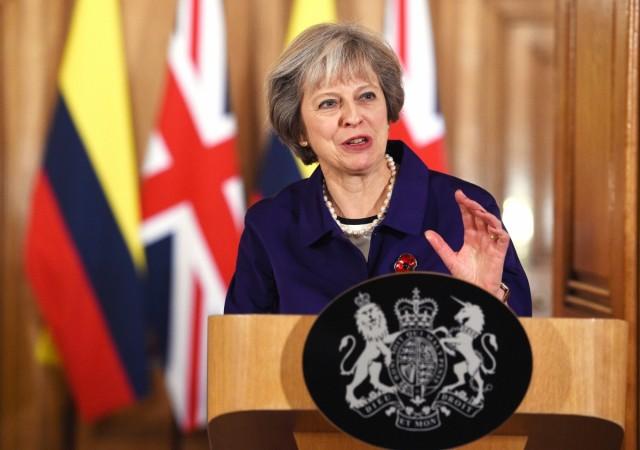
United Kingdom's newly-appointed Prime Minister Theresa May is scheduled to visit India on November 6, for her first bilateral visit outside of Europe. May's decision to choose India as her first destination for bilateral talks signifies the UK government's eagerness to forge lucrative ties with India after exiting the European Union.
For India, the primary focus of the visit would entail discussions on business relations and easy visa access for Indian students and workers. May's tough stance on migration and strict visa curbs have not been well-received by Indian policymakers.
India is Britain's third largest source-market for international students, after United States and China with 10,664 student visa applications granted between June 2015 and 2016. However, the number is likely to go down with new visa policies in place in UK.
According to the new visa rules, Tier 2 Visa holders who earn less than 35,000 pounds per year will not be allowed to stay in the UK. The international students were earlier allowed to stay in the nation for two years after completion of their studies, however, under the visa curb by the Conservative government, the students are only allowed a six-months stay in the country now. Reports state that this period is likely to be further shortened.
"The government has taken up the matter bilaterally with the UK government at various levels and expressed concerns over the changes in UK visa rules," commerce minister Nirmala Sitharaman had said in a written reply to the Rajya Sabha earlier this month.
UK unwelcoming towards international students
Britain does not appear to be an educational hotspot for many Indian students anymore, as many of them in India take educational loans to pursue their studies in UK hoping to repay their loans in pounds. However, with new Visa curbs, they will have to go back to India soon, making the opportunity of them getting an employment in country scarce.
"I am rethinking applying to the UK, cutting down on the universities I want to go to because I feel the country has been unwelcoming towards Indians. In that respect, I certainly prefer the US. I may have to take a loan for my studies abroad and the only way I can pay it back is if I can stay and work there for a while. If I am forced out of the country soon after my course then how will I repay my loans?" Joyeeta Biswas, an aspirant for an international masters course said.
According to the International Consultants for Education and Fairs Monitor figures, the number of Indian students travelling to Britain has fallen significantly. Reports state that the number of students coming from India fell by almost 10 percent between 2013-2014 and 2014-2015, making the US replace India as the second largest source-market for non-EU international students in the UK.
Udit Bhatia, an Indian PhD scholar who is currently a lecturer in Oxford University, feels strongly about the international student visa policy in place in UK.
"They are obviously picking on students who are a soft target. And it is their loss. Especially when it comes to higher education- many highly talented students and scholars are now ignoring Britain and going to the US," he said.
International students considered migrants
The Conservative government considers international students under the ambit of net migration, even though majority of the non-EU students return to their countries. As the home secretary of the Cameron government, Theresa May had cracked down hard on immigration to reach its goal of reducing net immigration to below 100,000 per year. The government has clearly failed to do so.
"It is true that recent governments have had little success delivering on pledges to cut immigration, but using cuts in students to reduce overall numbers is at best short-sighted," Craig Calhoun, the outgoing director of the London School of Economics (LSE) said.
There has been a growing demand from universities and other stakeholders in Britain to remove international students from the net migration figures. However, May has constantly turned down this demand.
"Students, tourists and other short-term visitors are not migrants under any definition," Acting High Commissioner to the UK Dinesh Patnaik said.
Ever since its separation from the European Union, Britain is in need of international allies outside of the EU for trade and business. India seems to be UK's favourite spot owing to the nation's 7.6% growth rate.
India is now the fastest growing economy in the world. Therefore, May's visit this week could see a good deal in store for the Indian students, workers and tourists.
The UK PM's visit to India will be a litmus test for the Conservative government's contradictory stance of heavy regulation on migration and advertising the nation as globally accommodating.

















